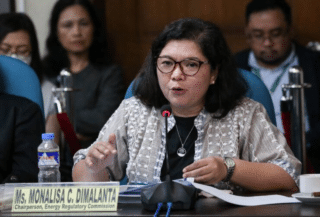The Securities and Exchange Commission (SEC) on Monday resolved the long-running uncertainty on the application of foreign ownership limits in Philippine corporations, saying that the 40-percent Constitutional cap must be applied to shares that entitle owners to vote, as well as the broader classification of shares whether they qualify their owners to vote or not.
In a memorandum circular dated May 20, SEC chair Teresita Herbosa said that “for the purposes of determining compliance [with the ownership limits], the required percentage of Filipino ownership shall be applied to both the total number of outstanding shares entitled to vote in the election of directors, and the total number of outstanding shares of stock whether or not entitled to vote in the election of directors.”
According to SEC, once the circular has been published in two national newspapers, corporations will have one year to comply with this new official interpretation of the foreign ownership cap.
The new SEC definition is a victory for business groups that have lobbied for a more liberal interpretation of the foreign ownership cap, after the Supreme Court ruled in favor of a more conservative definition in the so-called Gamboa case.
The case refers to the 2007 suit filed by the late Wilson Gamboa, a shareholder in Philippine Long Distance Telephone Co., who tried to block the group of Manuel V. Pangilinan from purchasing additional shares in the country’s largest telco.
The high court ruled that the 40-percent cap on foreign ownership in Filipino firms should be applied separately, depending on the class of shares.
The high court’s decision went against the local practice of local companies issuing low-yield preferred shares to local shareholders to offset the amount of common shares held by foreign principals.



